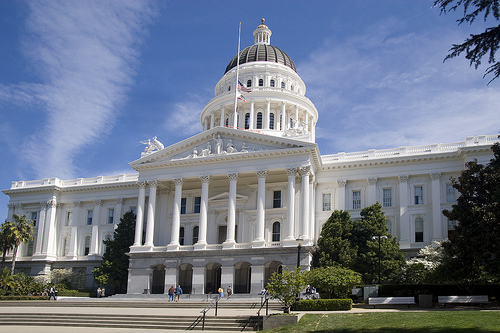The budget message of 2010: legislate more, tax less

With the November election in the rearview mirror, Californians now face the daunting tasks of living with a new administration - and a new set of budget rules - with far different implications than the ones prior.
Fortunately, even if one was disappointed by Tuesday's elections, it's difficult to imagine how California's economic situation could get any worse, so voters have more reason for optimism than pessimism. Moreover, the passage of two key (if undercovered) measures on California's ballot will produce a more even balance between the hard task of legislating and the easier task of building revenue gimmicks by keeping a tax-averse structure in place at the state level, but a budgetary process with more openings for bipartisanship.
Thus, given Governor-elect Jerry Brown's promises that he will govern in a bipartisan way (promises which, like so much said by politicians, must be tested by time before being fully believed), one can see the oncoming political environment as one where celebration is warranted. However, at the same time, while Californians have passed measures signaling legislative change, the winds of contradiction are already making themselves felt in California's political environment.
Take the measures mentioned above - namely, Propositions 21 and 25. Proposition 21, which resurrected the long dead issue of hiking vehicle licensing fees (the very subject which cost Democratic Governor Gray Davis his second term), went down in flames as Californians proved unwilling to accept the regressive idea for the second time running. Proposition 25, meanwhile, as discussed previously, lifted the by-this-point infamous requirement that all budgets be passed by a 2/3 majority while preserving that requirement for outright tax hikes - or, in other words, it mandated spending cuts. Taken together, these effects seem to suggest classic fiscal conservatism in the California electorate - namely, the desire to keep taxes and spending low at the same time.
However, encased in these two measures is a rather contradictory element. Specifically, Californians seem to want their legislators to make politically tough decisions on everything but taxes at precisely the point when a more tax-friendly administration will be taking office. While this might not be quite the recipe for fiscal disaster which was created by the previous regime under Governor Schwarzenegger, it has the potential to become something far worse, as the legislature may find itself butting heads with the Governor over the forced spending cuts brought about by Proposition 25, or if that legislature is feeling even more politically risky, butting heads with the electorate by hiking fees such as the aforementioned vehicle licensing fee in order to make up for budget holes. Short of either of these results, only budget gimmicks of the kind employed by the last administration are available, which raises the question of what exactly will happen over the next four years.
Political volatility has, by this point, become so out-of-fashion in California that it has led to the return of the state to its regular Democratic masters, and to the passage of Proposition 14, which is slated, at least in theory, to produce a wider range of "moderate" candidates. However, given the deep contradictions inherent in California's upcoming budget battles, political volatility may be all that Californians have to look forward to now that Election Night 2010 is over.



